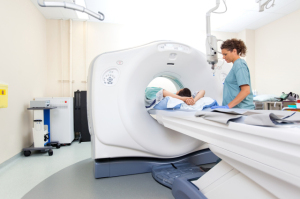by
Lauren Dubinsky, Senior Reporter | February 16, 2015
Humanetics Corporation has announced that it developed the first and only compound that holds the potential to spare healthy tissue from the dangerous effects of CT scan and X-ray radiation.
A study published in JAMA found that the 72 million CT scans performed in the U.S. in 2007 could be related to 29,000 future cancer cases. In recent years there has been a push to limit the amount of radiation patients are exposed to.
"We don't want consumers to have to choose between undergoing an important medical treatment that will expose them to harmful radiation, or foregoing that treatment," Ronald J. Zenk, CEO of Humanetics, said in a statement.



Ad Statistics
Times Displayed: 16169
Times Visited: 33 Final days to save an extra 10% on Imaging, Ultrasound, and Biomed parts web prices.* Unlimited use now through September 30 with code AANIV10 (*certain restrictions apply)
BIO 300 is a nanoparticle formulation that unlocks the radioprotective effects of genistein, which is the predominant isoflavone found in soy. It can both protect cells from radiation damage and lessen the damage after exposure.
Humanetics received research grants and contracts from the National Institutes of Health and the U.S. Department of Health and Human Services to study BIO 300. Preclinical studies involving solid tumor cancers found that the compound can protect healthy lung tissue from the effects of ionizing radiation exposure.
The next step is to conduct a clinical trial investigating whether the compound can mitigate the side effects of chemotherapy and lung cancer treatment-related radiation on healthy tissue. That trial will commence in the second quarter of 2015.

